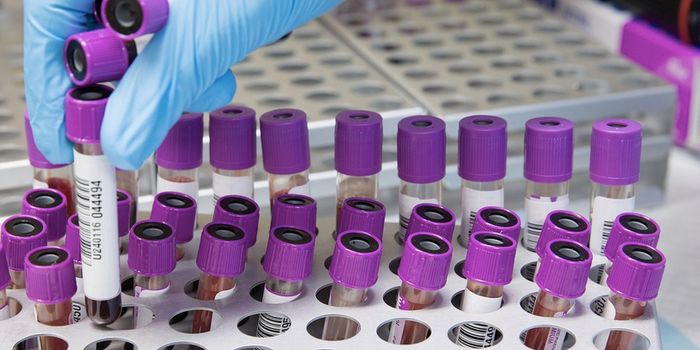Vitamin K Revealed as Potent Cell Death Suppressor
Researchers have known that vitamin K has antioxidant properties, but the mechanism behind that function remained obscure; 'antioxidant' is a general term for chemicals that can prevent or delay some kinds of cell damage or death. Antioxidants can neutralize harmful chemicals called free radicals. New research has shown how vitamin K can act to stop ferroptosis, a form of cell death that was first described in 2012.
Damaged or worn out cells may go undergo some type of programmed cell death to maintain the health of an organism. In ferroptosis, the outer membranes of mitochondria rupture, and lipid peroxidation products and dangerous reactive oxygen species (ROS) from iron metabolism may accumulate. Vitamin K, working as an antioxidant, has been shown to disrupt this process, which can prevent cell death. The findings have been reported in Nature.
Previous work has also shown that FSP1 (ferroptosis suppressor protein-1) is the enzyme that reduces vitamin K to create vitamin K hydroquinone in a newly identified non-canonical vitamin K cycle. Vitamin K hydroquinone behaves as a lipophilic antioxidant and traps free radicals in lipid bilayers of the membrane, preventing ferroptosis.
Vitamin K is also known to play a critical role in blood clotting. This study has also shown that FSP1 drives a vitamin K-reduction pathway that is not affected by a very common anticoagulant drug called warfarin. This research has also explained why vitamin K effectively counters warfarin overdoses.
Ferroptosis has recently been linked to acute organ injury and Alzheimer's disease. The researchers have suggested that vitamin K could be useful in treating those and other disorders relating to ferroptosis.
In this study, the research team screened a variety of natural vitamins and their derivatives. "Surprisingly, we identified that vitamin K, including phylloquinone (vitamin K1) and menaquinone-4 (vitamin K2), [can] efficiently rescue cells and tissues from undergoing ferroptosis," said co-corresponding study author Dr. Eikan Mishima of the Institute of Metabolism and Cell Death at Helmholtz Munich.
Though recently discovered, ferroptosis may be one of the oldest cell death pathways, so the researchers have hypothesized that vitamin K could be one of the oldest naturally occurring antioxidants.
"Thus, new aspects of the role of vitamin K throughout the evolution of life are expected to be unveiled," said co-corresponding study author Dr. Marcus Conrad of the Institute of Metabolism and Cell Death at Helmholtz Munich.
Sources: Helmholtz Association of German Research Centres, Nature


![Master Lab Weighing: Accuracy, Compliance & Audits [eBook]](https://d3bkbkx82g74b8.cloudfront.net/eyJidWNrZXQiOiJsYWJyb290cy1pbWFnZXMiLCJrZXkiOiJjb250ZW50X2FydGljbGVfcHJvZmlsZV9pbWFnZV85MWRmZmRjMDIwNDBlMWJjMzYwN2ZiYWY2ZjI4ZGMzYzBmZGMwZGMyXzkxOTcucG5nIiwiZWRpdHMiOnsidG9Gb3JtYXQiOiJqcGciLCJyZXNpemUiOnsid2lkdGgiOjcwMCwiaGVpZ2h0IjozNTAsImZpdCI6ImNvdmVyIiwicG9zaXRpb24iOiJjZW50ZXIiLCJiYWNrZ3JvdW5kIjoiI2ZmZiJ9LCJmbGF0dGVuIjp7ImJhY2tncm91bmQiOiIjZmZmIn19fQ==)






